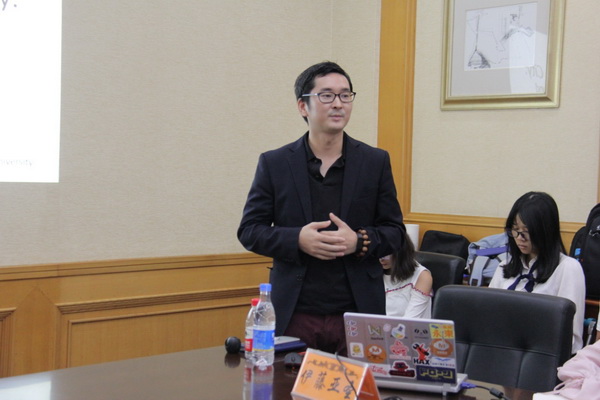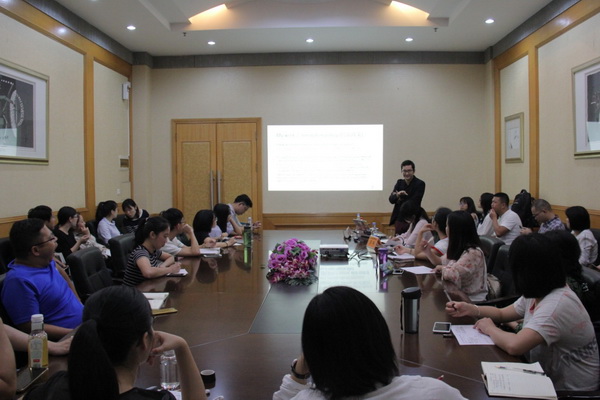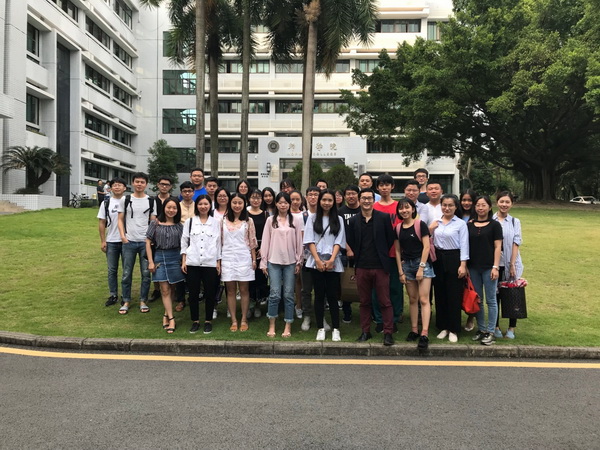2017-11-08
Though a scholar from Japan, Prof. Ito is quite familiar with the development of Chinese economy and he lectured in fluent Mandarin at this salon. Prof. Ito started his lecture with a detailed introduction to his areas of research, with emphasis on sharing his inspiration from the study on the development of Chinese economy in recent years, Shenzhen innovations in particular. He then moved on to the main content of today’s lecture with a question “Why is Shenzhen so innovative?” to introduce the innovation status quo of Shenzhen and its international influence. He pointed out that the robust innovation capability is largely attributed to the distinctive edges of Shenzhen as a “Silicon Valley of Hardware”, its patent protection policies and government policies in favor of aiding companies to thrive and hone their innovation capabilities. These policies create a favorable technological innovation environment in which Shenzhen streaks ahead of other cities in advanced manufacturing industry, and spearheading manufacturers like Huawei and Da-Jiang Innovations are bred. Prof. Ito then threw up another question “Why can the hardware ecosystem take shape in Shenzhen?” Taking typical innovative businesses in Shenzhen as an example, he summarized that the following factors are essential to shape the hardware ecosystem: 1). The mature industry chain of high-tech industry has fueled the efficient patent transformation into commercial products, fast industry growth and quick product circulation. 2). The open and modular industrial structure has lent to the clustering effect in the advanced manufacturing industry. 3). The innovative entrepreneurship in Shenzhen. Prof. Ito, based on the first two questions, then brought up the question “How will Shenzhen maintain sustainable innovative development in the future?” Factors like the gradually hiking business running costs, office rents and employees’ living costs are impeding the innovative growth of Shenzhen. In such a context, Shenzhen government is expected to focus its efforts on optimizing the business environment, launching a spate of policies to lower the costs of enterprises, deepening opening-up to magnetize quality national and international innovative resources to Shenzhen, in a bid to maintain its sustainability in innovative development. At the end of the lecture, Prof. Ito made a profound sum-up of his lecture and again shared his feelings of conducting academic research in Shenzhen. He expressed his gratefulness for the care and help from leaders and teachers at CCSEZR during his stay.
Prof. Ito’s novel, informative and well-organized lecture fueled heated discussions among attendees who raised questions regarding the high-profile innovation hot spots in Shenzhen, industry chain cluster study, and the comparisons of advanced manufacturers between China and Japan. Attendees said they benefited a lot from Prof. Ito’s clear answers to all these questions and thorough communications between them. The salon was concluded amid thunders of applause from the teachers and students present. (Correspondent: Zhou Jingnan)

Asei Ito, assistant professor of the Institute of Social Science, the University of Tokyo

The scene at the salon for Ph.D. students

A group photo of the salon participants